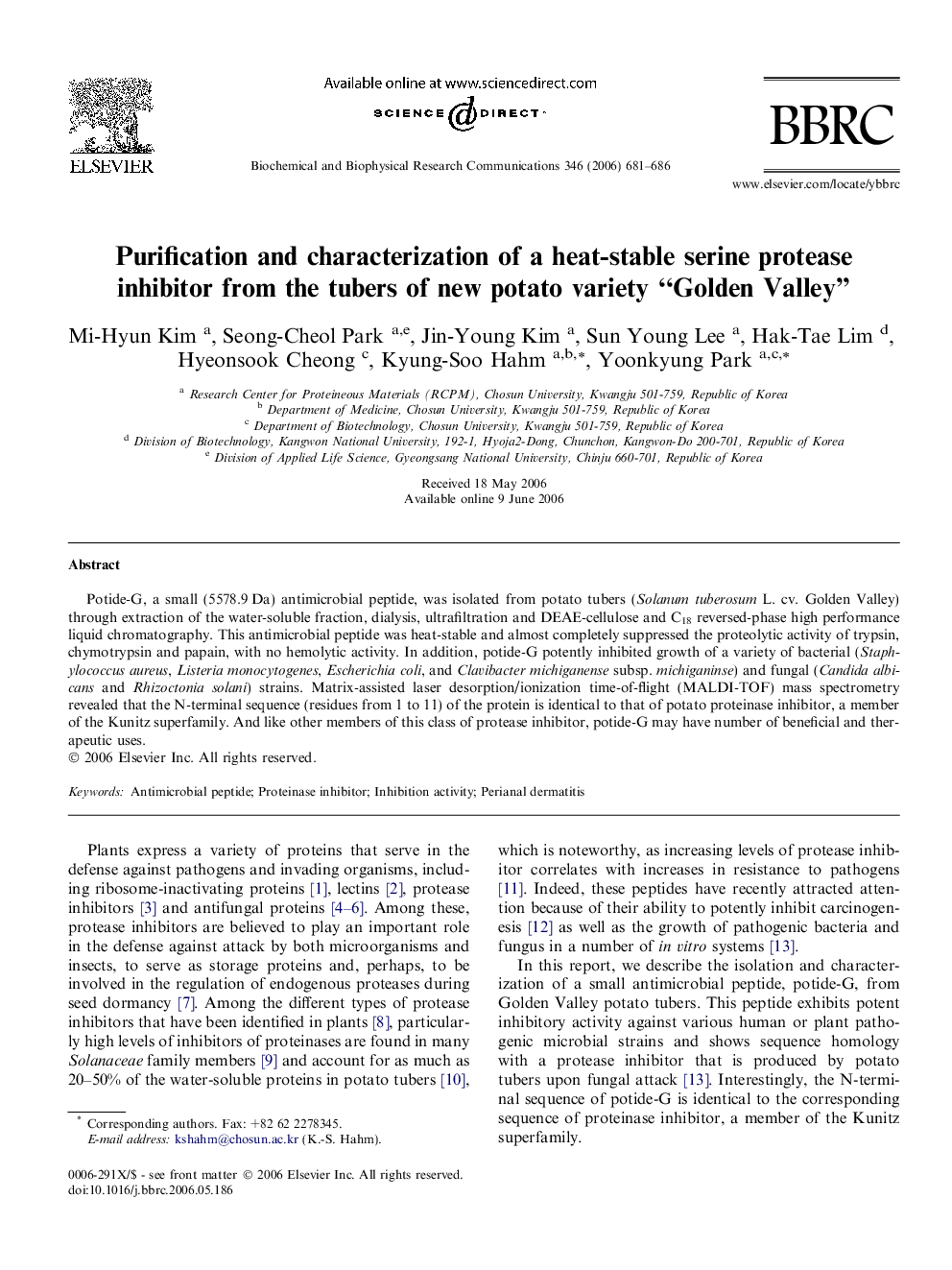| Article ID | Journal | Published Year | Pages | File Type |
|---|---|---|---|---|
| 1939444 | Biochemical and Biophysical Research Communications | 2006 | 6 Pages |
Potide-G, a small (5578.9 Da) antimicrobial peptide, was isolated from potato tubers (Solanum tuberosum L. cv. Golden Valley) through extraction of the water-soluble fraction, dialysis, ultrafiltration and DEAE-cellulose and C18 reverse-phase high performance liquid chromatography. This antimicrobial peptide was heat-stable and almost completely suppressed the proteolytic activity of trypsin, chymotrypsin and papain, with no hemolytic activity. In addition, potide-G potently inhibited growth of a variety of bacterial (Staphylococcus aureus, Listeria monocytogenes, Escherichia coli, and Clavibacter michiganense subsp. michiganinse) and fungal (Candida albicans and Rhizoctonia solani) strains. Matrix-assisted laser desorption/ionization time-of-flight (MALDI-TOF) mass spectrometry revealed that the N-terminal sequence (residues from 1 to 11) of the protein is identical to that of potato proteinase inhibitor, a member of the Kunitz superfamily. And like other members of this class of protease inhibitor, potide-G may have a number of beneficial and therapeutic uses.
